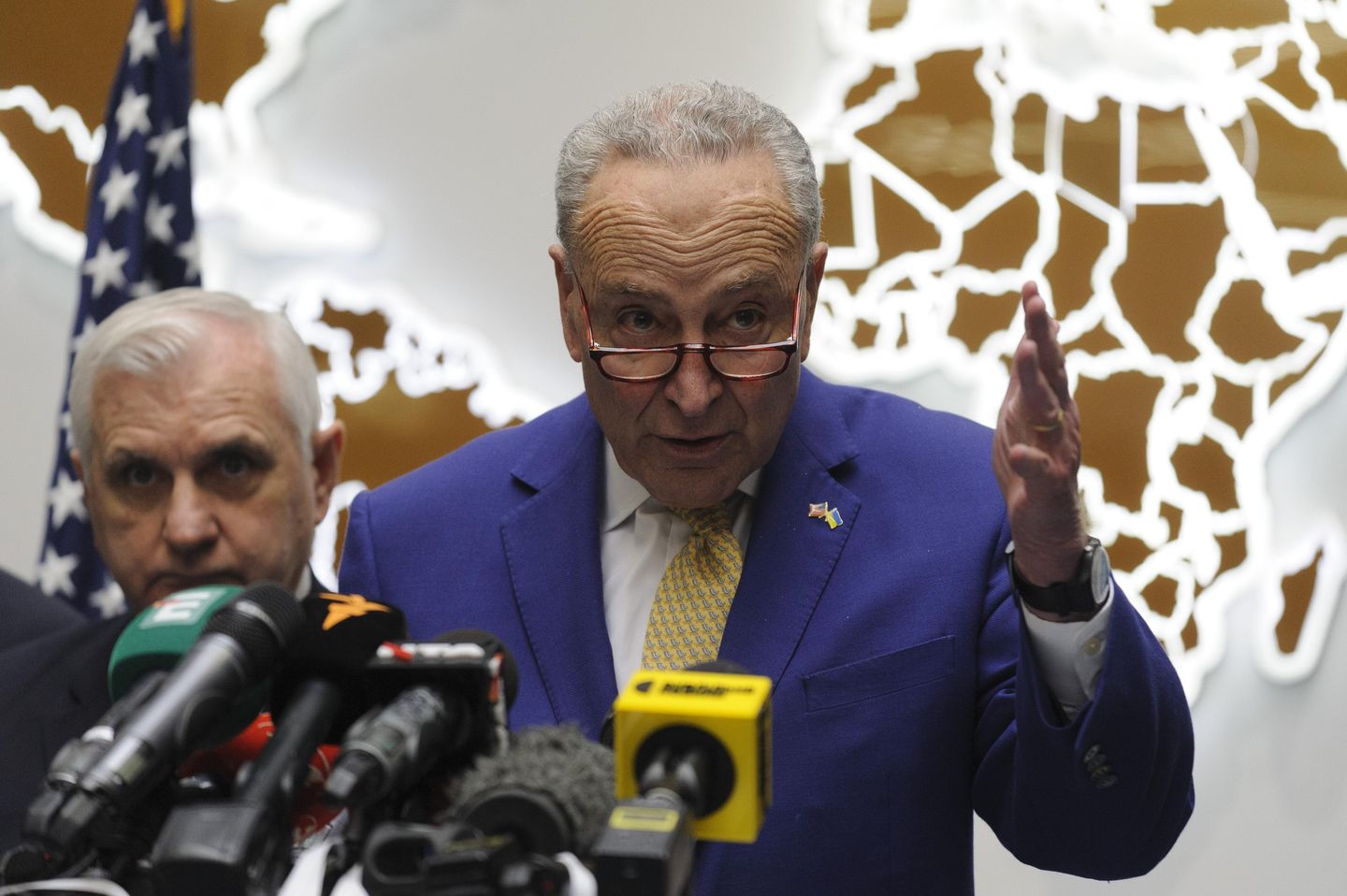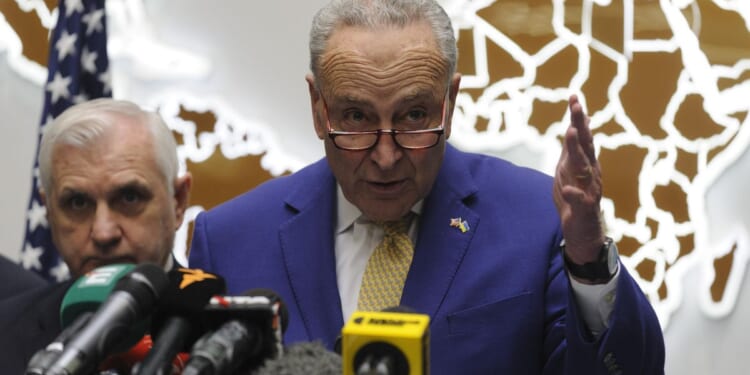
The top Senate Democratic and GOP leaders called on lawmakers Friday to unite behind the government surveillance reauthorization bill before the legislation’s key spying component expires at midnight.
Senate Majority Leader Charles E. Schumer, New York Democrat, said negotiators are still attempting to “see if there is a path” to renew the Foreign Intelligence Surveillance Act’s Section 702 “quickly.”
“The work is not done, so we’re going to keep at it,” he said on the Senate floor. “We want to get FISA done as soon as we can because it’s very important for our national security.”
Mr. Schumer reminded lawmakers that it takes only one member to slow down the bill’s final passage, adding that “both sides” need to “fully cooperate.”
Senate lawmakers advanced legislation to reauthorize FISA by a vote of 67-32 on Thursday, but bipartisan opposition may prevent final passage in time to stop a lapse of the law at midnight Friday.
The legislation reauthorizes the government’s ability to collect troves of data — emails, texts and phone calls — from foreigners living abroad, all without obtaining a warrant.
Americans’ communications sometimes get ensnared as well, which has raised privacy concerns among lawmakers and divided the Senate over renewing the Foreign Intelligence Surveillance Act’s Section 702. The House approved the reauthorization last week.
Section 702 expires at midnight Friday, but Senate rules prohibit a final vote on the bill before Saturday unless all 100 senators agree to speed it up. Although there are enough votes to pass the legislation, it takes only one senator to block a speedy vote.
Some lawmakers who oppose the bill are poised to slow it down, which means the spy tool could be temporarily stalled beyond its expiration.
Senate Minority Leader Mitch McConnell, Kentucky Republican, said opponents of the legislation are “fearmongering” and potentially putting U.S. national security at risk if they pursue tactics that delay the bill’s reauthorization after its deadline.
“A number of our colleagues have drawn some puzzling conclusions about the House-passed bill that would allow us to prevent Section 702 from lapsing,” Mr. McConnell said.
He listed criticism from opponents of the bill who take issue with the lack of a warrant for a FISA database search when querying Americans.
He also slammed those who want to strip out a last-minute provision that expands who the federal government can order “to transmit or store wire or electronic communications,” which can include cable TV installers and data centers.
Mr. McConnell pushed back, saying, “Federal courts tasked with overseeing the appropriate use of Section 702 authorities have already ruled that the fearmongering about new threats to U.S. citizens’ privacy was completely unfounded.”
“We even heard the Democratic whip [Sen. Dick Durbin, Illinois Democrat] suggest that a lapse in authorities wouldn’t really mean going dark, even though they expire at midnight. This is absurd.”
Sen. Ron Wyden, Oregon Democrat, who has promised to do everything in his power to stop the reauthorization of Section 702, took to the floor after Mr. Schumer and Mr. McConnell and responded to their pleas to support FISA’s reauthorization.
Mr. Wyden challenged supporters of the bill’s newest electronic and wire communications provision, where the government may involve cable TV installers and data centers.
“Supporters of the provision said over and over again that Section 702 only targets foreigners overseas. This is a red herring. The provision does not change the targeting rules, but it dramatically changes who can be forced to actually help the government,” Mr. Wyden said.
“And you don’t have to change the targeting rules to threaten Americans’ privacy,” he said. “The government thinks that it’s foreign targets for communicating with people in the United States, they can go right to the source, the Wi-Fi, the phone lines and servers.”












